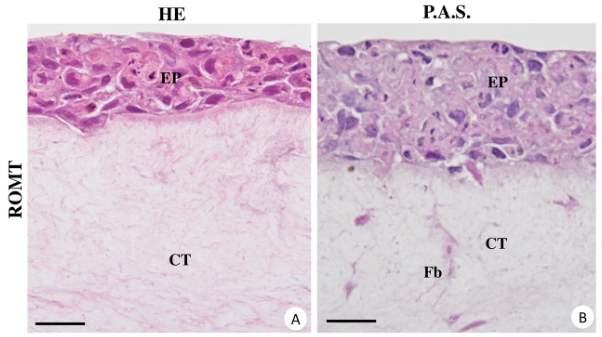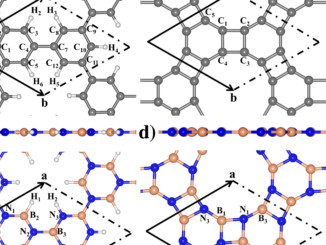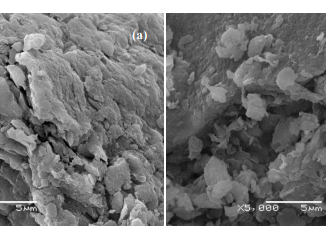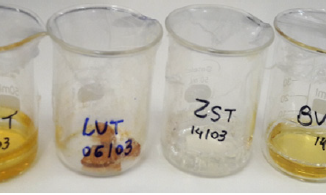
Development and characterization of a 3D oral mucosa model as a tool for host-pathogen interactions
Abstract: The aim of this study was to (i) design, develop and validate a practical and physiologically relevant reconstituted in vitro oral mucosa tissue model and (ii) to assess its applicability in in vitro host-pathogen interactions with C. albicans and S. aureus. Co-culture organotypic constructions were created by incorporating specific numbers of keratinocytes (NOK-si) onto cellularised, collagen gel scaffolds containing human gingival fibroblasts incubated in KGM media and cultured for 14 days. The detection of the appropriate oral mucosa/epithelial structure was evaluated by histology (hematoxylin and eosin (HE), periodic acid Schiff (P.A.S.) and Picrosirius red), and immunocytochemistry (cytokeratin 13, cytokeratin 14, Ki-67 and collagen IV) compared to a normal human gingiva. The morphology of the reconstituted tissue was analyzed by Transmission Electron Microscopy. To further quantitate tissue damage, lactate dehydrogenase (LDH) was measured in the tissue supernatant. NOK-si grown upon a gingival scaffold provided an organotypic model in an in vitro setting and exhibited structural characteristics typically associated with normal oral mucosa. Immunocytochemistry revealed the detection of epithelial cytokeratins 13 and 14, Col IV and Ki-67 in the reconstituted oral mucosa model. Infection was detected after 8 h and 16 h. This study presents an in vitro cellularised, organotypic model of reconstituted oral mucosa, which enables close control and characterization of its structure and differentiation over a mid-length period of time in culture.
Author(s): Dias, KD; de Sousa, DL; Barbugli, PA; Cerri, PS; Salih, VM; Vergani, CE
JOURNAL OF MICROBIOLOGICAL METHODS
Volume: 152 Pages: 52-60 Published: SEP 2018
PDF: Development and characterization of a 3D oral mucosa model as a tool for host-pathogen interactions
DOI: 10.1016/j.mimet.2018.07.004




